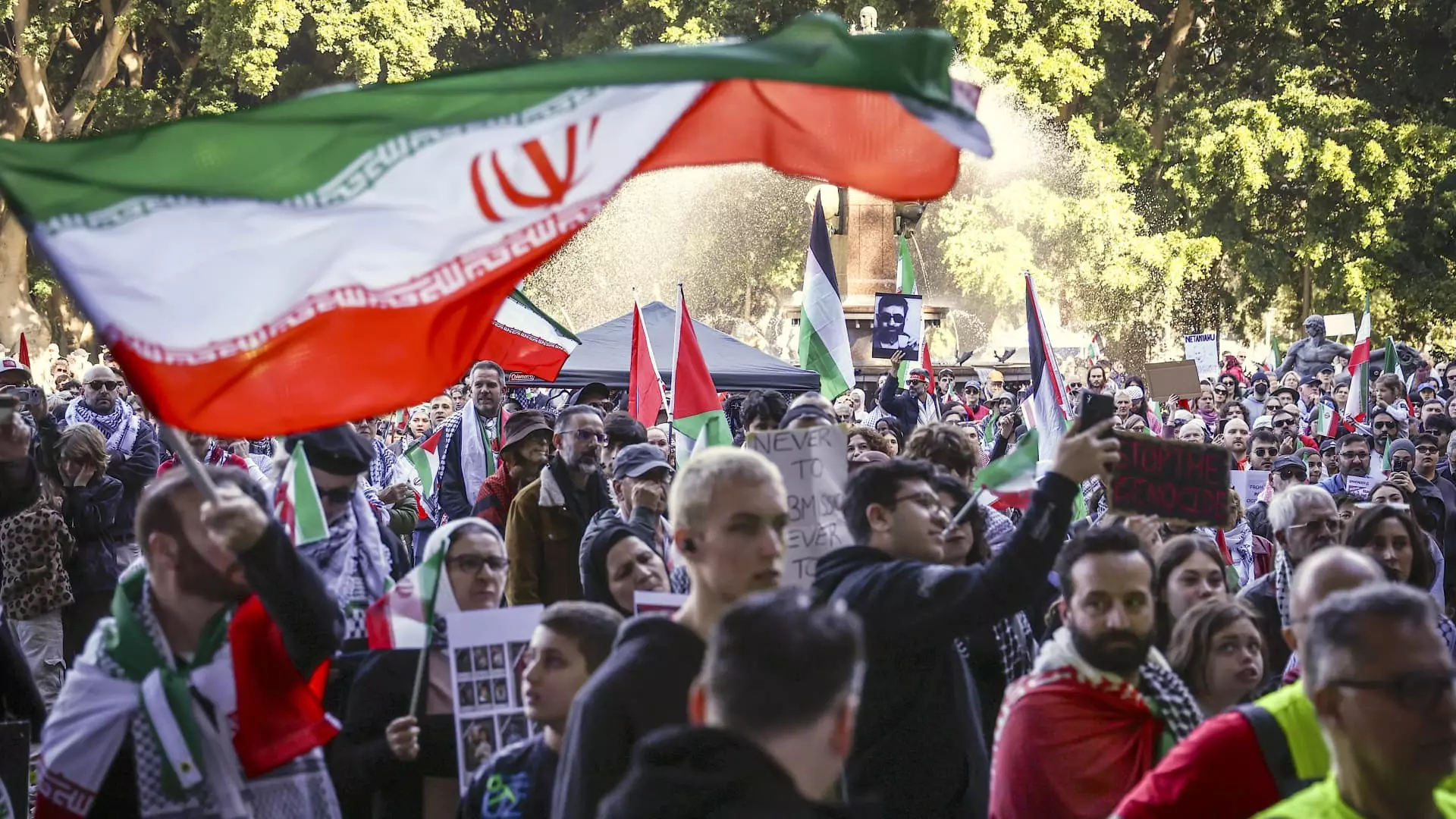The geopolitical tensions between Iran and Israel have reached an alarming pinnacle, one that reveals the fragility of peace in the Middle East. Recent military actions—namely the U.S. airstrikes on Iranian nuclear facilities—demonstrate an outrageous disregard for diplomacy in favor of aggressive posturing. Iran’s response, marked by missile and drone attacks on Israeli military targets, has further ignited a conflict that threatens not only the two nations involved but also the stability of the entire region. The consequences of such actions can be catastrophic, inciting a potentially endless cycle of violence that undermines both countries’ long-term interests.
Abbas Araghchi, Iran’s Foreign Minister, quite rightly condemned the U.S. strikes as “outrageous” and declared that Iran retains the right to defend its sovereignty. This sentiment is not only nationalistic but also reflective of a broader despair in the face of foreign intervention. Escalation from the U.S. and Israel, under the assumption that military prowess can resolve complex geopolitical tensions, shines a glaring light on their potentially volatile miscalculations. It’s an erroneous belief that power alone can crack the fragile shell of diplomacy, a sentiment that policymakers seem to cling to recklessly.
A Collapse of Diplomatic Efforts
What is particularly troubling about recent events is how swiftly they dismantle ongoing diplomatic negotiations. Araghchi pointed out that these military actions occurred when peace talks were in motion, a fact that underscores a crucial failure in international relations. The decision to opt for military strikes rather than diplomatic solutions raises grave concerns about the wisdom of current U.S. leadership. The assertion that Trump’s recent actions are a “spectacular military success” seems empty when weighed against the potential long-term ramifications of escalating an already precarious situation.
In a climate where the promise of diplomacy could avert disaster, the U.S.’s belligerent approach does little more than fan the flames of conflict. Rather than engaging with Iran and the international community to navigate complexities surrounding nuclear enrichment, the focus seems predicated on militaristic solutions. This trajectory not only hinders meaningful negotiations but also emboldens hardline elements within Iran that may seek revenge rather than reconciliation.
The Role of Regional Players
The regional response to the current escalation has resonated deeply beyond the principal actors. Countries such as Saudi Arabia, Iraq, and Qatar have all expressed serious concern, recognizing the perilous path that these hostilities pave for wider Middle Eastern stability. This sentiment illustrates a shared recognition that escalations in one area can have profound ripple effects, destabilizing countries and populations beyond those directly involved.
Furthermore, Lebanon’s call for restraint points to a collective yearning for dialogue over destruction. In a region scarred by prolonged conflicts and suffering, this appetite for diplomatic engagement is critical. Acknowledging the interconnectedness of Middle Eastern states, it becomes more evident that military aggressions are detrimental for all parties involved. A fragmented response among international actors only serves to complicate matters further, diluting the unifying potential of a cohesive diplomatic front.
The Human Toll of Military Engagement
The human cost of these military engagements cannot be overstated. With reports indicating over 430 fatalities within Iran and civilian casualties in Israel due to retaliatory strikes, the tragic consequences of this conflict unfold in real-time. What is often sidelined in this power struggle is the profound loss of life and the suffering of innocents caught in the crossfire. The rhetoric surrounding victory and military success frequently obscures the brutal reality faced by families and communities torn apart by violence.
Rather than viewing military conquest as a route to peace, it’s high time that stakeholders recognize the pervasive suffering that such actions engender. The narratives created around “spectacular successes” fail to account for the human experience; they miss the cries for non-violence and the urgency of sensible dialogue.
The ongoing conflict between Iran and Israel reveals not just a struggle for territorial and ideological supremacy but a tragic saga of human cost and suffering. The obligation lies with global leaders not just to promote their interests but to safeguard humanity in the face of stark choices between war and peace. Through active engagement, recognizing shared human dignity rather than fueling the fires of aggression, we can hope for a pathway toward lasting resolution rather than acrimony.



Leave a Reply